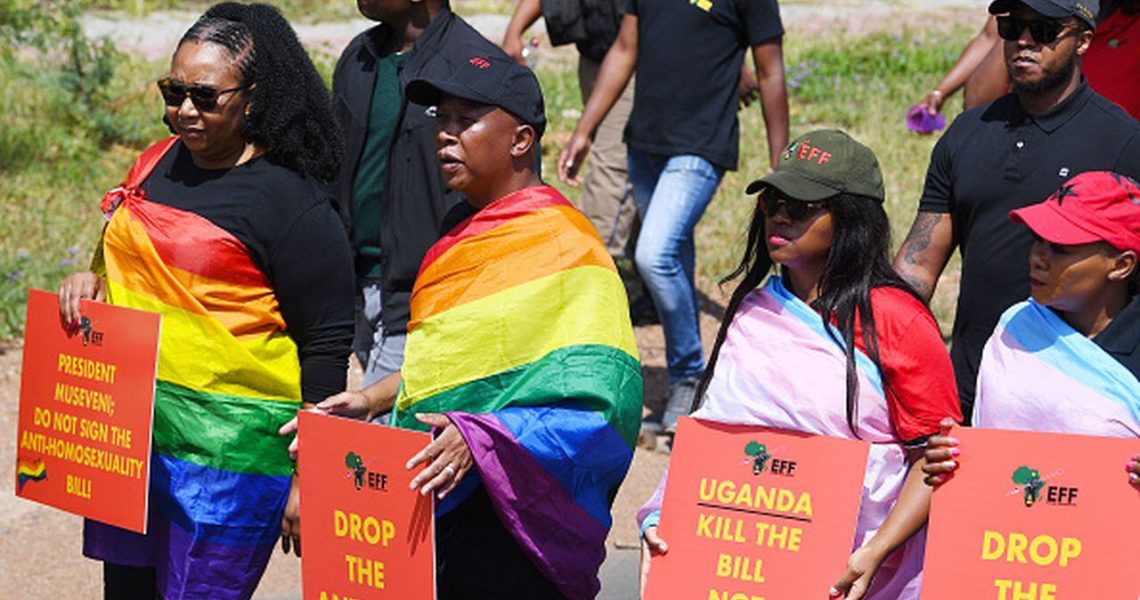Uganda Faces Commercial Battle with the U.S. Over Anti-Homosexuality Law
In May of this year, Uganda passed a controversial law targeting homosexuality, sparking a commercial and diplomatic standoff with the United States. This conflict escalated further when President Joe Biden announced Uganda’s exclusion from the African Growth and Opportunity Act (AGOA), along with other countries like Niger and Gabon. AGOA is a trade agreement that allows sub-Saharan African countries to export hundreds of products to the U.S. duty-free.
The Impact of AGOA Exclusion on Uganda’s Economy
Uganda’s exclusion from AGOA deals a severe blow to its economy, especially considering that over 40% of the country’s budget relies on external support, particularly in critical sectors like health and education. A significant portion of Uganda’s population lives below the poverty line, with more than 30% surviving on less than $1.77 per day. The suspension of loans by the World Bank in August further strained Uganda’s economic prospects.
President Museveni’s Response and Domestic Concerns
President Yoweri Museveni of Uganda swiftly retaliated against the U.S. decision, asserting Uganda’s ability to progress independently of Western support. However, domestic voices, including Odrek Rwabwogo, an advisor to Uganda’s Committee of Experts and Industrial Development, accused President Biden of using Uganda as a pawn for domestic political gains ahead of the upcoming U.S. presidential elections. Concerns were also raised about the potential adverse effects on Ugandan farmers and small businesses.
Commercial Ramifications and the Impact on Trade
The exclusion from AGOA is expected to significantly reduce commercial activities between Uganda and the United States. Already, there have been reports of American companies canceling export orders to Uganda due to concerns over the anti-homosexuality law. President Museveni noted that this law was already affecting Uganda’s textile exports to the U.S., but he remained defiant, suggesting that Uganda could compensate for any losses by tapping into other markets.
Uganda’s Textile Industry and Second-Hand Clothing Imports
Uganda, like many other sub-Saharan African countries, has been a recipient of second-hand clothing imports, primarily from the United States under AGOA. However, President Museveni announced plans to ban such imports, citing the need to protect local textile industries. This move further underscores the complexity of Uganda’s economic landscape and its efforts to navigate global trade dynamics.
The Role of the U.S. Dollar as a Weapon
Local economists have expressed concerns that the United States is leveraging its economic influence to pressure Uganda over the anti-homosexuality law. Some believe that the U.S. is intentionally devaluing the Ugandan currency by restricting business prospects, while others emphasize the need for dialogue between the Ugandan government and the U.S. to avert further commercial restrictions.
Potential Long-Term Economic Implications
Fred Muhumuza, director of the Economics Forum at Makerere University Business School, warns of the long-term economic repercussions if Uganda fails to engage in constructive dialogue with the United States. He stresses the importance of establishing a framework for ongoing communication to mitigate potential losses and safeguard local interests.
Health Sector Concerns and HIV/AIDS Funding
The anti-homosexuality law’s impact extends beyond commerce to critical areas like public health, particularly in HIV/AIDS prevention and treatment. With over 1.4 million Ugandans living with HIV/AIDS, any disruptions in funding or support could exacerbate the country’s health crisis. President Museveni acknowledges the importance of continued HIV/AIDS funding but asserts Uganda’s readiness to finance its healthcare needs independently if necessary.
Security Challenges and Tourism
Uganda also faces security challenges, highlighted by recent attacks on foreign tourists by rebel groups like the Allied Democratic Forces (ADF). Tourism, once a significant source of revenue for Uganda, is now threatened by such incidents, further complicating the country’s economic outlook.
In conclusion, Uganda’s confrontation with the United States over the anti-homosexuality law underscores the complex interplay between politics, economics, and human rights. As Uganda grapples with the ramifications of its legislative decisions, it must navigate carefully to safeguard both its economic interests and its international standing. The path forward may require dialogue, compromise, and a renewed commitment to upholding fundamental human rights while ensuring sustainable economic growth.
